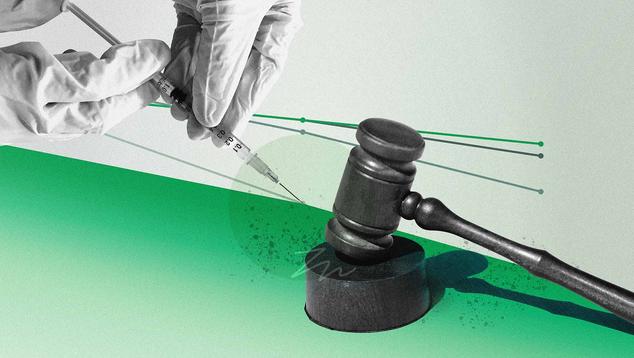WASHINGTON, D.C. -- Younger generations of U.S. adults are far less likely than older generations to favor the death penalty for convicted murderers. As a result, overall support for the death penalty in the U.S. has fallen to 53% today, a level not seen since the early 1970s.
Less than half of U.S. adults born after 1980 -- those in the millennial and Generation Z birth cohorts -- favor the death penalty. At the same time, roughly six in 10 adults in older generations are in favor of such laws. Two decades ago, there were no meaningful age differences in views of the death penalty.
These results are based on aggregated data from Gallup’s annual Crime survey, which dates back to the year 2000. This analysis focuses on three time periods during which death penalty support was relatively stable -- 2000 through 2006 (when an average of 66% of U.S. adults were in favor of the death penalty), 2010 through 2016 (61%) and 2020 through 2024 (54%). The last period reflects the lowest levels of death penalty support Gallup has measured since a 50% reading in 1972.
Two decades ago, all generations’ support for the death penalty was within three percentage points of the 66% national average. At that time, the oldest millennials had entered adulthood.
Between 2010 and 2016, support among adult millennials had fallen from 63% to 56%, while it dipped only slightly, to 63% or 64%, among the older generations.
In the most recent period, millennials again show diminished support, dropping another nine points to 47% in favor of the death penalty. Members of Generation X, baby boomers and the Silent Generation all show slight declines over the past decade, ranging from two to five points.
Now that many in Generation Z (currently aged 12 to 27) have become adults, this subgroup is proving even less supportive of the death penalty than millennials are, at 42%.
Younger generations’ exposure to the issue has come when many states had moratoriums on the death penalty or repealed laws that allowed capital punishment. These efforts were often motivated by cases in which death-row inmates were later found innocent of the crime for which they were convicted.
Republicans Largely Maintain Support for the Death Penalty
As Gallup showed in last year’s death penalty update, the percentage of Republicans in favor of the death penalty has generally held steady over the past 25 years. The change in attitudes by generational group is thus seen more among political independents and, especially, Democrats. To analyze changes in death penalty support among generations in different party groups, the two younger (Gen Z and millennial) and three older (Gen X, baby boom and Silent) birth cohorts are combined to increase the reliability of the subgroup estimates. Even so, there are not sufficiently large sample sizes of Gen Zers and millennials in the 2000-2006 time period, before most had reached adulthood, to produce estimates for party subgroups of those generations.
Decreased death penalty support was first apparent among Democrats in older generations. Between 2000 and 2006, 57% of Democrats in Generation X or above favored the death penalty. Ten years later, support among this group had dropped to 49%, and it is at 38% in the most recent period.
Younger Democrats -- those in Gen Z and millennials -- show an even larger drop in the past decade, from 45% to 27%.
Among political independents, those in Generation X or above showed steady support for the death penalty between the early 2000s and early 2010s, but that has dropped modestly since then, from 64% to 58%. The change among younger independents has been larger, from 55% to 45%.
While older Republicans’ views have not changed to a meaningful degree, there has been a slight decline in death penalty support over the past decade among younger Republicans, from 73% to 69%.
As a result of these changes, there are now double-digit gaps in death penalty support between people with the same political party identification from different generations. For example, 38% of Democrats and 82% of Republicans in older generations versus 27% of younger Democrats and 69% of younger Republicans, respectively, favor the death penalty.
Also, roughly 20 percentage points now separate Democrats from independents, and independents from Republicans, in both generational groups. Among those in Generation X or above, for example, 38% of Democrats, 58% of independents and 82% of Republicans support the death penalty.
Bottom Line
The death penalty is another issue on which Americans’ views have shifted toward a more liberal point of view in recent decades, along with same-sex marriage, marijuana legalization and having a baby outside of marriage.
These changes have been pushed to a large degree by the views of younger generations of Americans, whose outlook is distinct from those of their parents and grandparents. Americans are now more divided on this issue than they have been since the late 1960s and early 1970s, when the death penalty was temporarily abolished in the United States. Even so, the issue has recently been less prominent in policy debates and political campaigns than others such as abortion, transgender rights and immigration.
To stay up to date with the latest Gallup News insights and updates, follow us on X @Gallup.
Learn more about how the Gallup Poll Social Series works.
View complete question responses and trends (PDF download).




